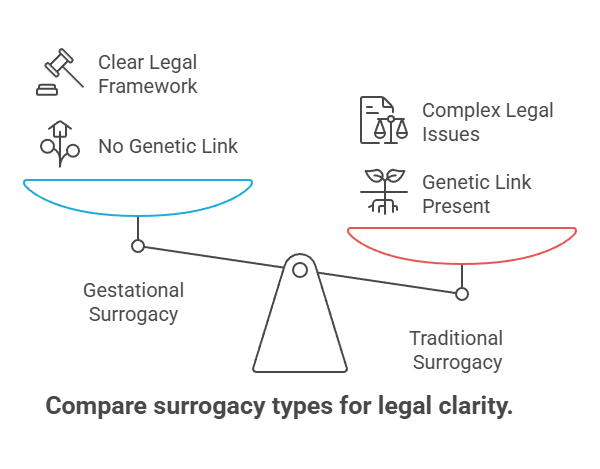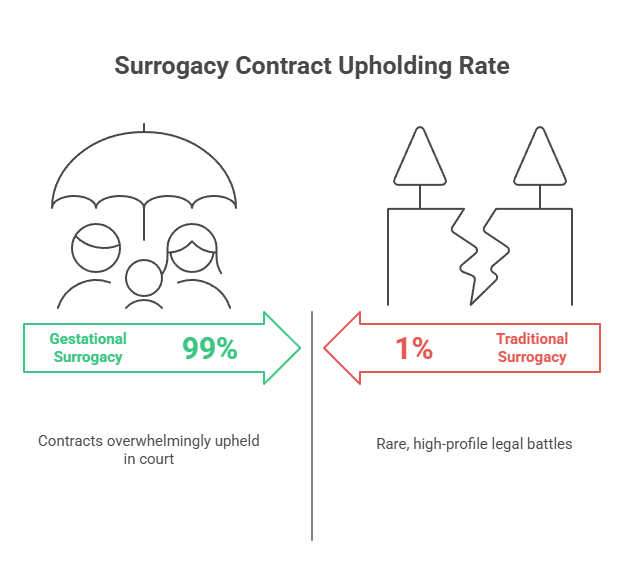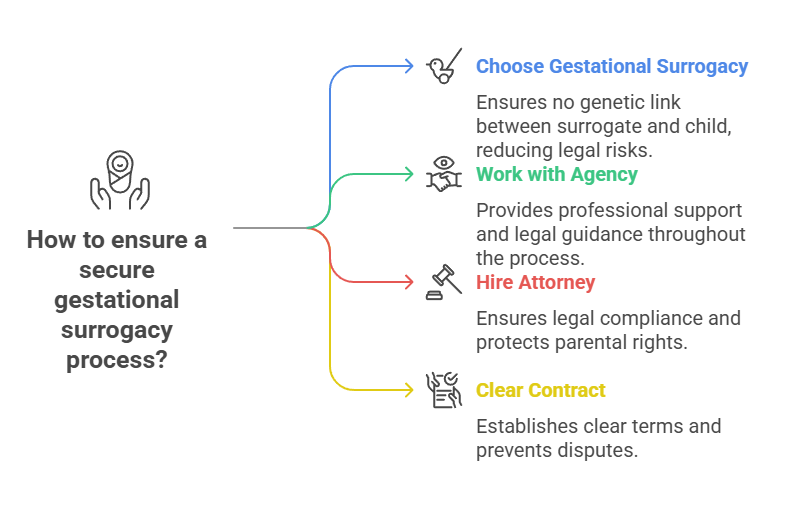Short answer: No — in gestational surrogacy, a surrogate cannot legally claim the baby if there’s a valid legal contract in place.
This is one of the most common and understandable concerns intended parents have when starting their surrogacy journey. After all, a surrogate carries the baby for nine months — could she suddenly decide she wants to keep the child?
Let’s walk through the facts so you can feel informed and confident.
More: Can a Surrogate Pass on DNA? The Truth Explained
1. Legal Foundations: Contracts Determine Parentage
In gestational surrogacy (which is the most common type today), the surrogate has no genetic link to the baby. The egg and sperm come from the intended parents or donors, not from the surrogate herself. That makes a huge difference legally.
Before the embryo transfer, both parties sign a legally binding contract. This agreement outlines everyone’s roles, responsibilities, and — most importantly — clearly states who the legal parents of the child will be. In surrogacy-friendly states like Texas, California, and Colorado, this contract is reinforced by court orders (often pre-birth) so that the baby legally belongs to the intended parents from birth.
Without such a contract — or in traditional surrogacy, where the surrogate is also the egg donor — the situation gets much more complicated and riskier.

2. What If the Surrogate Changes Her Mind?
In modern, agency-supported gestational surrogacy with a strong legal agreement, this scenario is extremely rare. Courts in the U.S. overwhelmingly uphold surrogacy contracts, especially in gestational cases.
In contrast, traditional surrogacy (where the surrogate shares DNA with the baby) has had rare, high-profile legal battles — which is why many agencies avoid it altogether.

3. Emotional Attachment: Is It a Risk?
Surrogates go through extensive screening, including psychological evaluations. They understand from day one that they’re not carrying “their baby,” but someone else’s. Many surrogates say they feel honored, not emotionally conflicted. Agencies also provide counseling and check-ins throughout the process to support emotional clarity.
More: How Much Does a Surrogate Cost in Texas? A Complete Breakdown
4. How to Protect Yourself as Intended Parents
- Choose gestational surrogacy
- Work with a licensed surrogacy agency
- Hire an experienced attorney in your state
- Make sure a clear, legal contract is in place before transfer

Final Thoughts
So, can a surrogate claim the baby?
In gestational surrogacy with a proper legal contract — absolutely not.
The law is on your side, and with the right preparation, your journey can be safe, smooth, and life-changing.




